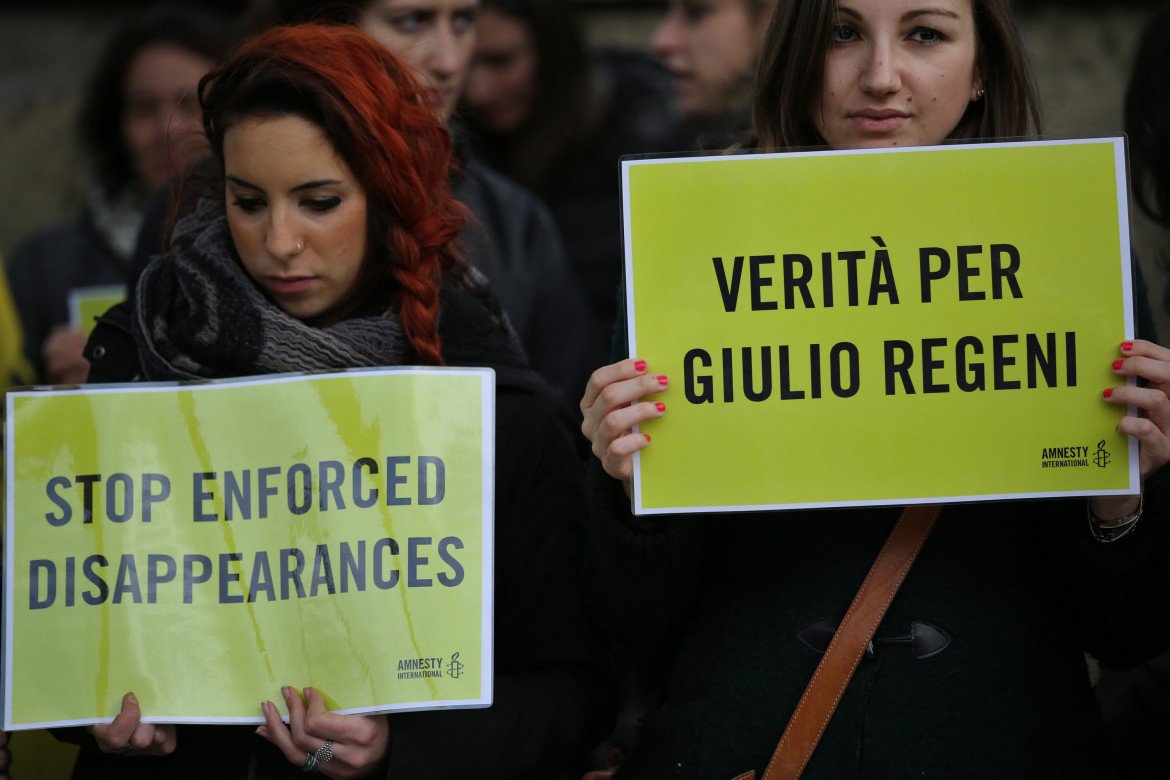Commentary
Truth Giulio Regeni, Egypt unsafe country
Is Egypt so important that we can disregard fundamental rights of the person?

The literary force and, I would say, political strength of Paola Regeni’s words always arouse wonder and admiration.
“Actions, not commemorations,” said the mother of Giulio Regeni, the Italian researcher killed in Cairo, before the Subcommittee on Human Rights of the European Parliament, on Wednesday.
The commemorations are not useless — far from it — but they inevitably bring resignation and irreparable finality. Consummatum est: It remains, and the memory can even be renewed, but it will be a permanently exhausted memory.
That can stand like a monument, even a powerful one, but not viable. And the “actions” of Paola and Claudio Regeni, in their role of “parents moving around institutions” (as they define themselves), they wanted to, once again, declare the clear and inescapable words, asking the Italian government and the E.U. to “increase pressure on Egypt for a transparent investigation.”
And, even more concretely, they have urged Italy to “declare Egypt an unsafe country,” to “suspend the joint activities for the control and internal repression, and shipment of war weapons and equipment” and to “monitor the trials against activists, lawyers and journalists who are fighting for freedom in Egypt.”
These and other demands show how dramatic has been the Italian government’s departure in behavior, which seems too slow in its dealings with the Egyptian regime, even paralyzed and uncertain to the point of acquiescence. Inevitably, the prime minister has been asked: Can this be changed? And he responded with words that, alas, appeared thin and flimsy: “In the coming days, we will try again to figure out what is the situation and get an update, and we will contact Giulio’s parents.”
It is really too little, too poorly inadequate compared to such a significant tragedy, the implications both internally and internationally, and in the face of an attitude — that of the Egyptian regime — that continues its intentional and silent hostility.
Yes, of course, the new Italian ambassador in Cairo has not yet been formally instituted, and therefore he remains formally “recalled.” But this first act, which dates back to April 8 was not followed by others.
I do not doubt that the government is conducting its initiatives, and I do not deny that these require the necessary confidentiality, prudent understanding and appropriate timing. But there is a very high risk that all this may be understood by the other party (the el-Sisi regime) as a form of subordination.
What were and are the “forms of pressure” that the Foreign Minister has repeatedly said he wants to implement?
And, while more actors keep asking to declare Egypt unsafe, how would the Foreign Ministry explain that on its website? The Egyptian section does not contain the slightest reference to the fate suffered by Giulio Regeni? Just a detail, but it reveals the shrill echo of unresolved ambiguity.
Nobody, I think, may conclude that the geo-strategic role of Egypt to the threat posed by Daesh or the importance of diplomatic and trade relations between the two countries are especially negligible, but the real question is: Is it possible that the political-military scenario of the region and legitimate economic interests can reduce the question of protection of fundamental rights of the person (Giulio Regeni and thousands and thousands of anonymous Egyptians) to a trifling matter of detail?
If it does, it would not only provide a further cruel frustration for Regeni’s parents, but of a declaration of surrender of our government and a disastrous failure of the entire policy.
Luigi Manconi is an Italian senator from the Democratic Party.
Originally published at http://ilmanifesto.info/verita-per-giulio-regeni-legitto-paese-non-sicuro/ on 2016-06-19
